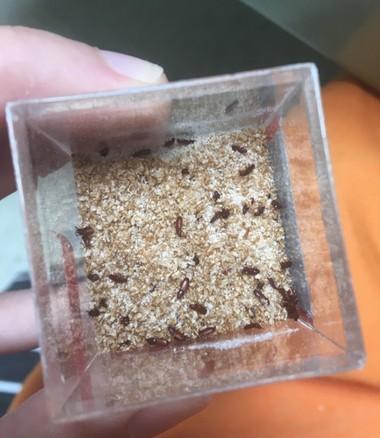
Credit: Easton White
BURLINGTON, VT–What do we really know about reasons attributed to the success or failure of wildlife management efforts? A new study originating out of UVM suggests a disquieting answer: much less than we think.
A new study in the Proceedings of the National Academy of Sciences finds that ecological systems might contain a lot of inherit randomness that makes them difficult to manage. One of the most difficult parts of managing an invasive species or a fishery is determining whether or not the management strategy was effective. If a management strategy failed to reach some goal, was this because it was the wrong strategy or because of inherit randomness in the system? Perhaps, that particular management strategy would have been the right choice 9 times out of 10 and managers were simply unlucky.
Led by Dr. Easton White from the University of Vermont, in collaboration with scientists in California and Colorado, the study used mathematical models to first demonstrate that there could be high levels of variability in species management outcomes. They then tested these ideas with an experimental invasive species, the flour beetle (Tribolium confusum).
“In nature, we might only have a single study site we are concerned with managing,” White says. “This means we typically only have a single replicate under study, making it difficult to determine the ultimate cause of management success or failure. The combination of mathematical models and laboratory experiments provide replication and a measure of ecological management variability.”
The team also found that the highest levels of management variability occurred at intermediate levels of management effort. In other words, unless a large amount of effort is used to control a system, we are likely to fail or succeed simply by chance. This is concerning for real systems where we have limited budgets.
“Our results suggest that much of ecological management is bound to succeed or fail simply because of good or bad luck,” notes White. “In our experiment we were able to control the laboratory conditions precisely, reducing variability caused by the environment. Thus, we might expect that managing natural systems might lead to higher levels of variability.”
The team also investigated the combination of different management strategies. To control the invasive species, they tried direct harvesting and controlling the beetle movement. They found that combinations of strategies, as opposed to only using a single strategy, were often more effective.
###
The study can be found at:
https:/
You can read more about this, and related work, at Easton White’s website: https:/
Media Contact
Kevin Coburn
[email protected]
802-656-1247
Original Source
https:/
Related Journal Article
http://dx.




